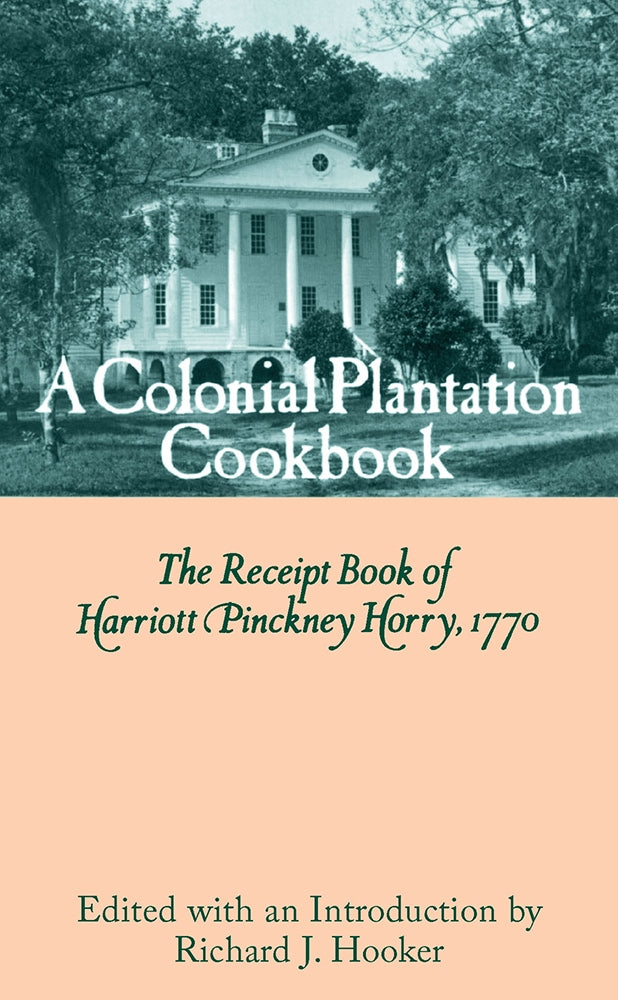1
/
of
1
University of SC Press
A Colonial Plantation Cookbook The Receipt Book of Harriott Pinckney Horry, 1770 Harriott Pinckney Horry edited by Richard J. Hooker
A Colonial Plantation Cookbook The Receipt Book of Harriott Pinckney Horry, 1770 Harriott Pinckney Horry edited by Richard J. Hooker
Regular price
$21.99 USD
Regular price
Sale price
$21.99 USD
Unit price
/
per
Couldn't load pickup availability
Harriott Pinckney Horry began her receipt book more than two hundred years ago. It is being published now for the first time.
You will get a lively sense of what colonial plantation life was like from reading Harriott's receipt book. She began it in 1770, shortly after she was married, writing recipes and household information in a notebook. Her recipes reflect both English and French culinary traditions. You will recognize in the recipes the origins of some of your contemporary favorites.
Harriott writes also about keeping the dairy and smokehouse, how to dye clothes, what to do about insects, how to care for trees and crops, and how to make soap, all skills she learned in the course of managing the plantation after her husband's early death.
From Harriott's writing and Hooker's knowledgeable introduction and editorial notes, you will learn what it was like to be well-to-do and a member of Southern aristocracy, living in a world of rice and indigo planters, merchants, lawyers, and politicians—the colonial elite. Because knowing about food preferences and eating habits of any people expands our understanding of their nature and times, the receipt book of Harriott Pinckney Horry opens another window on the history of colonial plantations.
You will get a lively sense of what colonial plantation life was like from reading Harriott's receipt book. She began it in 1770, shortly after she was married, writing recipes and household information in a notebook. Her recipes reflect both English and French culinary traditions. You will recognize in the recipes the origins of some of your contemporary favorites.
Harriott writes also about keeping the dairy and smokehouse, how to dye clothes, what to do about insects, how to care for trees and crops, and how to make soap, all skills she learned in the course of managing the plantation after her husband's early death.
From Harriott's writing and Hooker's knowledgeable introduction and editorial notes, you will learn what it was like to be well-to-do and a member of Southern aristocracy, living in a world of rice and indigo planters, merchants, lawyers, and politicians—the colonial elite. Because knowing about food preferences and eating habits of any people expands our understanding of their nature and times, the receipt book of Harriott Pinckney Horry opens another window on the history of colonial plantations.
Share


